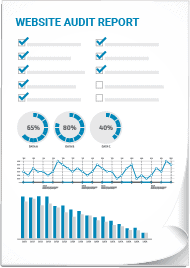Are you a life coach struggling to make your mark online? I’ve been there. Crafting an engaging, trustworthy website can feel like climbing Everest without oxygen. But it’s essential for connecting with potential clients.
Think about it—your website is often the first impression people have of your coaching business. It needs to showcase who you are, what you offer, and why you’re different from all those other coaches out there.
Today, I’m sharing practical tips that’ll help your site not just exist but thrive! Ready? Let’s dive in!
Table of Contents:
- The Benefits of Having a Professional Life Coach Website
- Essential Elements of a High-Converting Life Coach Website
- Top Life Coach Website Examples to Inspire Your Own
- How to Choose the Right Website Builder for Your Life Coaching Business
- Designing a Life Coach Website That Reflects Your Brand and Resonates with Your Target Audience
- Leveraging Your Life Coach Website to Grow Your Business and Impact More Lives
- Conclusion
The Benefits of Having a Professional Life Coach Website

If you’re a life coach, you know that having a strong online presence is crucial for attracting clients and growing your business. A professional life coach website can be a game-changer, helping you establish credibility, showcase your unique approach, and connect with your ideal clients.
Think about it: when potential clients are searching for a life coach, where’s the first place they’re going to look? Online, of course. And if you don’t have a website that clearly communicates who you are and what you offer, you’re missing out on a huge opportunity to make a great first impression and stand out from the competition.
Establish Credibility and Trust
One of the biggest benefits of having a professional life coach website is that it helps you establish credibility and trust with potential clients. When someone lands on your website, they should immediately get a sense of who you are, what you stand for, and why they should work with you.
I’ve seen firsthand how a well-designed website can make all the difference in building trust with potential clients. When I first started my coaching business, I didn’t have a website, and I struggled to get clients to take me seriously. But as soon as I invested in a professional website that showcased my expertise and experience, I noticed a huge shift in how people perceived me and my services.
Showcase Your Unique Coaching Style and Approach
Another key benefit of having a life coach website is that it allows you to showcase your unique coaching style and approach. Every coach has their own philosophy and methodology, and your website is the perfect place to communicate what sets you apart from other coaches in your niche.
When I was designing my own coaching website, I made sure to highlight my core values and the specific techniques I use with my clients. I wanted potential clients to get a sense of what it would be like to work with me and how I could help them achieve their goals.
Attract Your Ideal Clients
A professional life coach website can also help you attract your ideal clients. By clearly communicating who you serve and what challenges you help them overcome, you can attract the people who are most likely to benefit from your services.
When I first started my coaching business, I tried to be everything to everyone. But as I refined my website and messaging, I realized that I was much more effective when I focused on a specific niche. Now, my website is tailored to attract the clients who are the best fit for my coaching style and approach.
Provide Valuable Resources and Content
Your life coach website is also a great place to provide valuable resources and content for your audience. By sharing blog posts, videos, or downloadable guides related to your coaching niche, you can demonstrate your expertise and build trust with potential clients.
I’ve found that creating helpful content is one of the best ways to attract new clients and keep existing ones engaged. When someone finds value in the resources I provide on my website, they’re much more likely to reach out and work with me one-on-one.
Streamline Your Coaching Business Operations
Finally, a professional life coach website can help streamline your coaching business operations. By integrating tools like scheduling software and payment processors, you can make it easy for clients to book sessions and make payments directly through your website.
I used to spend hours every week managing my coaching schedule and invoicing clients manually. But since I integrated these tools into my website, I’ve saved so much time and energy that I can now focus on what I do best: coaching my clients to success.
Essential Elements of a High-Converting Life Coach Website
Now that we’ve covered the benefits of having a professional life coach website, let’s dive into the essential elements that make a website truly effective at converting visitors into clients.
I’ve spent years studying the best life coach websites out there, and I’ve noticed some common themes among the ones that consistently attract and convert ideal clients. Here are the key elements you need to include on your own website:
Compelling Homepage with Clear Messaging
Your homepage is often the first thing potential clients will see when they land on your website, so it’s crucial to make a great first impression. Your homepage should have a clear, compelling headline that immediately communicates who you are and how you can help your ideal clients.
I like to think of the homepage as a virtual “elevator pitch” for your coaching business. You have just a few seconds to capture someone’s attention and make them want to learn more about what you offer.
Some key elements to include on your homepage are:
- A professional headshot or branded image
- A clear, concise statement of what you do and who you serve
- A few key benefits or results your clients can expect
- A prominent call-to-action (CTA) button inviting visitors to take the next step, such as booking a discovery call or downloading a free resource
Engaging About Page Highlighting Your Expertise
Your About page is another crucial element of your life coach website. This is where you get to share your story, your qualifications, and what makes you uniquely qualified to help your ideal clients.
I’ve found that the most effective About pages are the ones that balance professionalism with personality. You want to showcase your expertise and experience, but you also want to give potential clients a sense of who you are as a person and what it would be like to work with you.
Some key things to include on your About page are:
- Your professional bio and qualifications
- Your personal story and why you became a coach
- Your coaching philosophy and approach
- Testimonials or success stories from past clients
- A call-to-action inviting visitors to learn more about your services
Service Pages Detailing Your Offerings
Of course, no life coach website would be complete without detailed pages describing your coaching services and packages. Your service pages should clearly outline what’s included in each offering, the benefits clients can expect, and the investment required.
I’ve found that the most effective service pages are the ones that focus on the transformation clients will experience, rather than just listing features or logistics. You want potential clients to envision themselves achieving their goals and experiencing the benefits of working with you.
Some key elements to include on your service pages are:
- A clear, concise description of each service or package
- The specific benefits and results clients can expect
- Details about what’s included (e.g. number of sessions, support between sessions, etc.)
- Pricing information or a clear call-to-action to request more details
- Testimonials or case studies related to each service
Testimonials and Success Stories
Speaking of testimonials, these are absolutely essential for building trust and credibility with potential clients. When someone is considering investing in coaching, they want to know that you have a track record of helping people like them achieve their goals.
I recommend including testimonials throughout your website, not just on a dedicated page. You can sprinkle them on your homepage, your About page, and your service pages to reinforce the benefits of working with you.
When selecting testimonials to include, look for ones that are specific and detailed. A generic “Great coach, highly recommend.” isn’t nearly as powerful as a testimonial that describes the specific results a client achieved or the impact coaching had on their life.
Opt-In Forms for Lead Generation
To grow your coaching business, you need a way to stay in touch with potential clients and nurture them over time. That’s where opt-in forms come in.
An opt-in form is a simple form that invites visitors to sign up for your email list in exchange for a valuable free resource, such as an e-book, worksheet, or video training. By offering something of value, you can attract leads who are interested in what you have to offer and build a relationship with them over time.
I recommend including opt-in forms throughout your website, such as in your header, sidebar, and at the end of blog posts. You can also create dedicated landing pages for your opt-in offers to drive traffic and conversions.
Blog with Valuable Content
Speaking of blog posts, a blog is another essential element of a high-converting life coach website. By consistently creating valuable content related to your coaching niche, you can attract organic traffic, build trust with potential clients, and establish yourself as an expert in your field.
I’ve found that the most effective blog posts are the ones that provide actionable advice and insights that readers can implement right away. You want your blog to be a go-to resource for your ideal clients, whether they’re looking for tips on achieving their goals, overcoming challenges, or improving their lives in some way.
Some key elements to include in your blog posts are:
- A clear, compelling headline that grabs attention and communicates the value of the post
- Subheadings and bullet points to break up the text and make it easy to scan
- Relevant images or graphics to visually illustrate your points
- A call-to-action at the end of each post inviting readers to take the next step, such as signing up for your email list or booking a discovery call
Contact Page with Booking Options
Finally, your life coach website needs a clear and easy way for potential clients to get in touch with you and book your services. Your Contact page should include all the essential information someone would need to reach out, such as your email address, phone number, and social media links.
But beyond just providing your contact information, I recommend including a booking form or calendar directly on your website. This makes it easy for potential clients to schedule a discovery call or consultation without any back-and-forth emails or phone tag.
There are many great scheduling tools out there, such as Calendly or Acuity, that integrate seamlessly with your website and automate the booking process. By making it easy for potential clients to take that first step, you can increase your conversion rates and grow your coaching business faster.
Top Life Coach Website Examples to Inspire Your Own

When creating your own life coach website, it can be helpful to draw inspiration from successful coaches in your niche. Some top life coach website examples include Marie Forleo, Melissa Ambrosini, and Preston Smiles. These websites often feature engaging homepage designs, compelling messaging, and a clear brand identity that resonates with their target audience.
They also typically offer a variety of resources, such as blog posts, podcasts, and free downloads, to attract and engage potential clients. Cortney McDermott‘s website is another great example that has a beautiful, simple, and intuitive design. The navigation and flow of her website feel effortless, which is key.
Daniel Mangena’s website, Dream with Dan, is a dreamy spectacle with an animated background that instantly transports you into his world, where anything is possible. Maggie Edwards presents her services in a clear and concise way, using a secondary menu to hide information she wants readily available but isn’t crucial to the typical website visitor taking a desired action.
Ajit Nawalkha is instantly relatable as soon as you read his hero section. Besides his work titles, he introduces himself as a father and husband, hinting at his holistic coaching philosophy. Holistic life coaches often struggle to create a strong brand statement because their services are less specialized, but Ajit addresses this challenge head-on.
Denise Duffield Thomas has a clear niche: she’s a money mindset coach for women entrepreneurs. If you have a very specific niche, make sure it is abundantly obvious, from the second visitors land on your website. Craig White does an excellent job of being relatable and demonstrating where and how he can help his target audience.
These top life coach websites showcase the importance of having a clear brand identity, engaging visuals, and valuable content that resonates with your ideal clients. They also demonstrate the power of using video testimonials and storytelling to build trust and credibility with potential clients.
As you create your own life coach website, consider how you can incorporate these elements in a way that feels authentic to your unique coaching style and approach. Remember, the goal is to create a website that not only looks great but also effectively communicates the value you offer and encourages visitors to take action.
How to Choose the Right Website Builder for Your Life Coaching Business
Choosing the right website builder is crucial for creating a professional and effective life coach website. With so many options available, it can be overwhelming to know where to start. Here are some key factors to consider when selecting a website builder for your life coaching business:
Assess Your Technical Skills and Budget
When choosing a website builder for your life coaching business, it’s important to assess your technical skills and budget. If you have limited technical experience, you may want to opt for a user-friendly platform like Squarespace or Wix, which offer drag-and-drop functionality and pre-designed templates.
If you have more advanced technical skills or a larger budget, you may prefer a more customizable platform like WordPress or Shopify. These platforms offer greater flexibility and control over your website’s design and functionality, but may require more time and effort to set up and maintain.
Consider the Features and Functionality You Need
Consider the specific features and functionality you need for your life coach website, such as e-commerce capabilities, email marketing integrations, or course hosting. Make a list of your must-have features and use it to guide your decision-making process when evaluating different website builders.
Keep in mind that some platforms may offer more advanced features at higher price points, so be sure to choose a plan that aligns with your needs and budget. For example, if you plan to sell coaching packages or digital products directly from your website, you’ll want to choose a platform with robust e-commerce features like Shopify or WooCommerce.
Evaluate Design Flexibility and Customization Options
When choosing a website builder, evaluate the design flexibility and customization options available. Look for a platform that offers a wide range of customizable templates or the ability to create a fully custom design.
Consider factors such as mobile responsiveness, font and color options, and the ability to add custom branding elements like logos and images. Platforms like Squarespace and Webflow are known for their sleek, modern templates and design flexibility, while WordPress offers virtually unlimited customization options through themes and plugins.
Look for Integrations with Your Favorite Tools
To streamline your coaching business operations, look for a website builder that integrates with your favorite tools and platforms. For example, if you use a specific email marketing service or CRM, ensure that your chosen website builder offers seamless integration with those tools.
This can save you time and hassle by automating certain processes and keeping all your client data in one place. Popular integrations to look for include Mailchimp, ActiveCampaign, Calendly, and Zapier.
Compare Pricing Plans and Value for Money
Before making a final decision, compare the pricing plans and value for money offered by different website builders. Consider factors such as the cost of hosting, domain registration, and any additional features or integrations you may need.
Keep in mind that while some platforms may have higher upfront costs, they may offer more value in the long run through advanced features, better support, or scalability options. Be sure to read reviews and compare plans carefully to ensure you’re getting the best value for your investment.
Ultimately, the right website builder for your life coaching business will depend on your unique needs, skills, and budget. By carefully evaluating these factors and doing your research, you can choose a platform that empowers you to create a professional, effective website that showcases your coaching expertise and attracts your ideal clients.
Draw inspiration from top life coach websites like Marie Forleo and Preston Smiles. These sites have engaging designs, clear messaging, and strong brand identities. They also offer valuable content to attract clients.
Designing a Life Coach Website That Reflects Your Brand and Resonates with Your Target Audience
Your life coach website is the face of your business. It’s the first impression potential clients get of who you are and what you offer. That’s why it’s crucial to design a website that truly reflects your unique brand identity and resonates with your ideal clients.
Define Your Unique Brand Identity and Voice
Before you start designing your life coach website template, take some time to define your unique brand identity and voice. What sets you apart from other coaches in your niche? What values and personality traits do you want to convey through your website?
For me, it’s all about authenticity, empowerment, and a touch of humor. I want my website visitors to feel like they’re having a conversation with a trusted friend who genuinely cares about their growth and success.
Choose a Color Palette and Typography That Aligns with Your Brand
Once you have a clear sense of your brand identity, it’s time to choose a color palette and typography that aligns with it. Your website’s visual elements should evoke the right emotions and create a cohesive brand experience.
When I designed my own life coach website, I opted for a warm, inviting color scheme with pops of vibrant orange to convey energy and enthusiasm. I also selected a clean, modern font that’s easy to read and reflects my straightforward coaching style.
Select Visuals That Evoke the Right Emotions
The visuals you use on your life coach website – from images to videos to graphics – should evoke the right emotions and support your brand messaging. Choose high-quality, authentic visuals that showcase your personality and coaching approach.
I like to use a mix of professional headshots, candid photos from coaching sessions, and inspiring stock imagery that reflects the transformation my clients experience. The key is to select visuals that feel genuine and relatable to your target audience.
Craft Compelling Copy That Speaks to Your Ideal Clients
Your website copy is where you really get to showcase your unique voice and speak directly to your ideal clients. Write in a conversational, relatable tone that addresses their pain points, desires, and goals.
Use storytelling to illustrate the transformation your coaching provides. Share client success stories and testimonials to build trust and credibility. And always keep your copy focused on the benefits and outcomes your ideal clients can expect from working with you.
Optimize Your Website for Mobile Responsiveness
Finally, don’t forget to optimize your life coach website for mobile responsiveness. With more and more people accessing websites on their smartphones, it’s essential to ensure your site looks and functions great on smaller screens.
Choose a website template or work with a designer who prioritizes mobile responsiveness. Make sure your text is easy to read, your buttons are easy to click, and your pages load quickly on mobile devices.
By following these tips and infusing your unique brand identity into every element of your life coach website design, you’ll create an online presence that truly reflects who you are and resonates with the clients you’re meant to serve.
Leveraging Your Life Coach Website to Grow Your Business and Impact More Lives

Your life coach website isn’t just a pretty online brochure – it’s a powerful tool for growing your business and impacting more lives. With the right strategies in place, your website can attract your ideal clients, build trust and credibility, and convert visitors into paying customers.
Implement Effective SEO Strategies to Boost Your Online Visibility
One of the most important ways to leverage your life coach website is by implementing effective SEO strategies to boost your online visibility. When your ideal clients search for topics related to your coaching services, you want your website to show up at the top of the search results.
Start by conducting keyword research to identify the phrases your target audience is searching for. Then, optimize your website content around those keywords, using them naturally in your page titles, headings, and body copy.
Create Valuable Content That Attracts and Engages Your Ideal Clients
Another key way to leverage your life coach website is by creating valuable content that attracts and engages your ideal clients. Your website shouldn’t just be about promoting your services – it should also provide helpful resources and insights that demonstrate your expertise and build trust with potential clients.
Consider starting a blog where you share tips, strategies, and personal stories related to your coaching niche. You can also create free resources like e-books, worksheets, or video trainings that provide a taste of your coaching style and leave your website visitors wanting more.
Offer Free Resources to Build Your Email List
Speaking of free resources, offering lead magnets is a powerful way to build your email list and nurture potential clients over time. When someone signs up for your free resource, they’re giving you permission to stay in touch and provide even more value.
I’ve found that offering a free discovery call or mini-coaching session is a great way to build my email list while also giving potential clients a chance to experience my coaching firsthand. It’s a win-win.
Promote Your Services and Programs Strategically
Of course, your life coach website should also strategically promote your services and programs. Make sure you have clear, compelling sales pages that outline the benefits and features of each offering.
Use persuasive copywriting techniques to address objections and inspire action. And don’t forget to include strong calls-to-action throughout your website, guiding visitors toward the next step in working with you.
Collaborate with Other Coaches and Influencers in Your Niche
Finally, consider collaborating with other coaches and influencers in your niche to expand your reach and attract new clients. You can guest post on each other’s blogs, co-host webinars or workshops, or even create joint coaching programs.
By leveraging the power of partnerships, you can tap into new audiences and add even more value to your existing community. Plus, collaborating with others is a great way to build relationships and grow your own skills as a coach.
Remember, your life coach website is so much more than just an online presence – it’s a powerful tool for growing your business, impacting more lives, and fulfilling your own purpose as a coach. By implementing these strategies consistently over time, you’ll create a thriving coaching practice that supports your clients and nourishes your soul.
Design a life coach website that reflects your brand and resonates with clients. Use authentic visuals, compelling copy, and mobile-friendly designs to make a lasting impression. Implement SEO strategies, create valuable content, offer free resources to build an email list, promote services strategically, and collaborate with influencers for growth.
Conclusion
You’ve got this! Building an impactful life coach website isn’t rocket science; it’s about authenticity and clarity. Your site should reflect you, speak directly to your ideal client, and provide valuable content they can’t resist.
If done right, these elements will transform visitors into loyal clients ready to embark on their journey with you. Remember—the best marketing doesn’t shout; it speaks clearly and offers real solutions.
Your strong sense of direction is truly rare and ensures those looking for guidance resonate with your message from start to finish.




